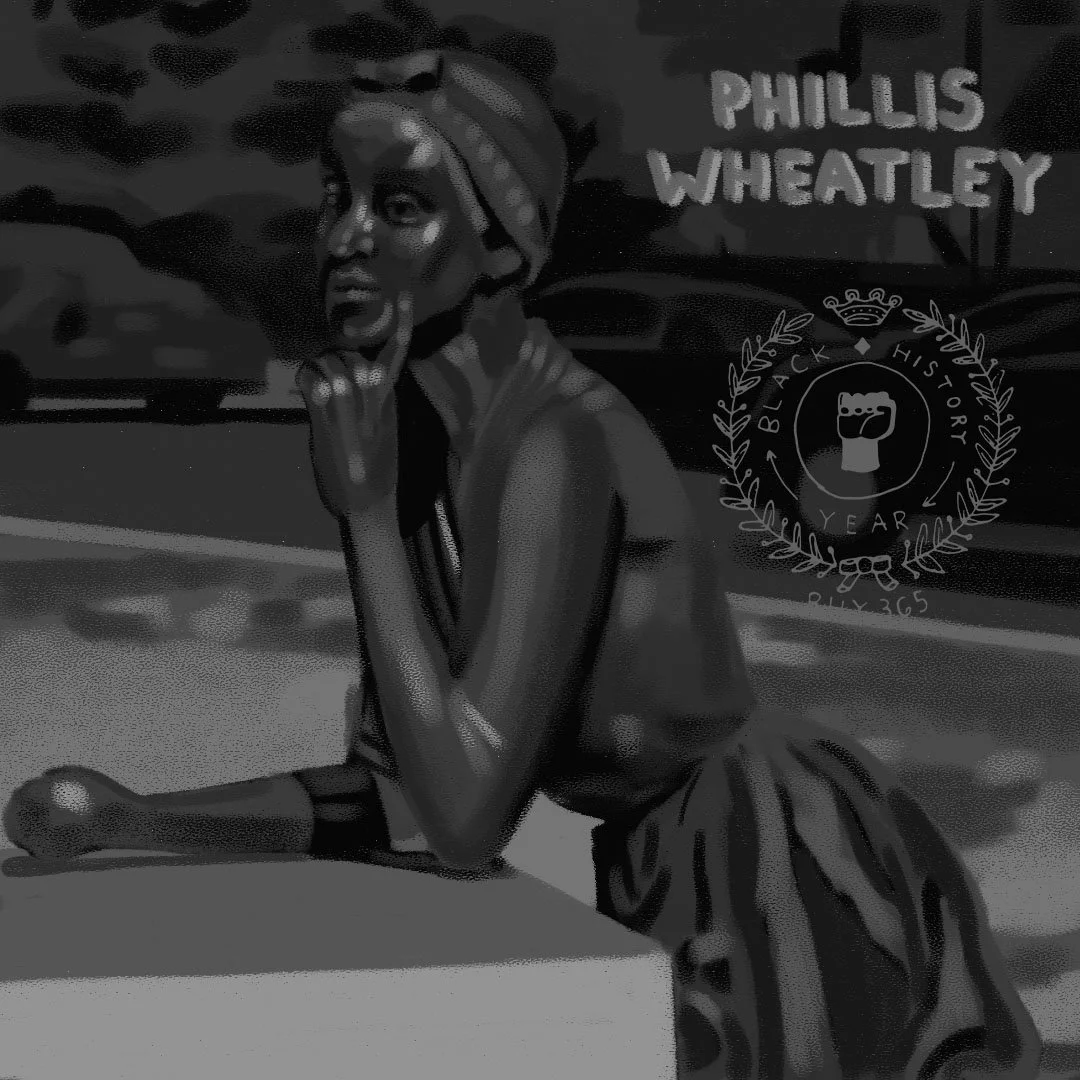Phillis Wheatley Peters was one of the best-known poets in pre-19th century America. Educated and enslaved in the household of a well-off white man John Wheatley played a part in indoctrinating her with the English language. Wheatley’s work however, was amazing and was the abolitionists’ illustrative testimony that blacks could be both artistic and intellectual. In hindsight we know her precociousness to not be as much as an anomaly as it may have seemed at the time. Through her works she became a household name and her works were a catalyst for the initial literary antislavery movement. Phillis Wheatley was stolen from Senegal/Gambia, West Africa, when she was about seven years old. By the time she was 18, Wheatley had gathered a collection of 28 poems for which she, with the help of Mrs. Wheatley, ran advertisements for subscribers in Boston newspapers in February 1772. Enslavers and abolitionists both read her work; the former to convince the enslaved population to convert, the latter as proof of the intellectual abilities of people of color. Although she supported the American Revolution, she believed that slavery was the issue that prevented the colonists from achieving true heroism. She wrote several letters to ministers and others on liberty and freedom. During the peak of her writing career, she wrote a well-received poem praising the appointment of George Washington as the commander of the Continental Army. In 1778, Wheatley married John Peters, a free Black man from Boston with whom she had three children, though none survived. Efforts to publish a second book of poems failed. To support her family, she worked as a maid in a boardinghouse while continuing to write poetry. Wheatley lived until December 5th, 1784. Wheatley's poems continue to be studied by scholars to this day, and many institutions have honored her legacy, such as the Phyllis Wheatley YWCA in Washington, DC.

